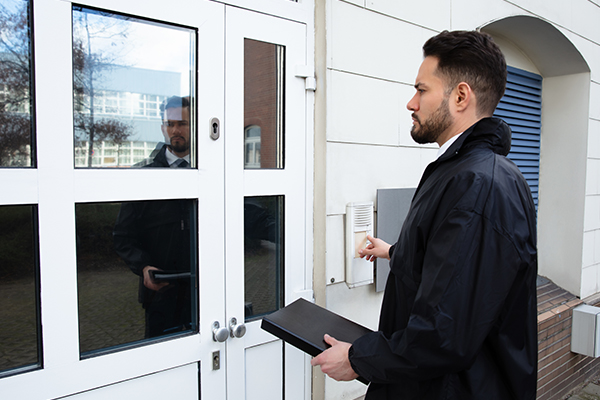
Working with your life partner in the same field or company can be a good thing, especially when you have established a workable system. In this episode, Monick Halm talks to Beth Clifford, an entrepreneur and business strategist. Beth proves to us the possibility of working side by side with your husband or partner without any tension or competition. Sharing her journey of being a developer, she shares how a bad-ass woman like her has succeeded in a male-dominated world. Beth believes that trusting and being around the right people is always key to any success in life and business.
—
Listen to the podcast here:
Starting From Big And Working With Your Love – Interview With Beth Clifford
I interview incredible bad-ass real estate investing goddesses, women that are crushing it in the real estate investing arena. Our guest is one of the biggest, bad-ass and most amazing of them all, Beth Clifford. I’m so excited to have her here. She has had an incredible amount of experience. She’s an entrepreneur, business strategist, a hands-on manager since 1980. She possesses a passion for effective, improving operations and executing with excellence and integrity. She was in Wall Street and Fortune 500 Companies. She got into the development space and she’s going to tell us a little bit more about her story. She did semiconductor fabrication facilities in the US, directing the efforts of over 1,200 workers and delivering multibillion-dollar projects on time. She’s done all different types of real estate. She’s been premium infill residential.
She’s earned Great American Living Awards for her work, medical offices, retail and office properties and is building the largest resort and residential property and the fastest growing Caribbean destination. We’re super excited to have her share more about that. She never tires of working with new entrepreneurs and startup companies. She’s an advisor, an angel investor, board member, personal advisors to founders, CEOs, government officials and all that. She’s also the mama of two amazing sons. I am so excited to have her here. Welcome back.
How are you?
I met you through The Real Estate Guys. It’s been so awesome getting to know you and you dropped these profound nuggets that have been life-changing for me. I’m super excited to share you with the goddesses and the Adonises that are reading. Let’s start from the beginning. How did you get started in real estate investing?
I came out of Wall Street & Technology. I’ve had two careers. One was technology-base starting in the early ‘80s and I decided I wanted to go do something that I’ve always loved. My grandfather was a builder and so I got the building bug probably when I was 3 or 4 years old summering with my grandfather and driving around in his 1950-something Chevy to his job sites. He used to take me. I’d sneak out of the house and instead of taking the nap, I would go in my grandpa’s truck. He would sneak me out of the house from my grandmother and take me on the job sites. I would love to go through it.
That’s where my passion for building comes from. I always loved 3D things. If I see a building with studs, I’ll stop the car and go running in. It’s like how people would go run in for a Ferragamo sale. I’m like, “It’s a building with studs. I’m going to go look at it.” I’ve always been fascinated by it and I’ve always loved it. In my mid-30s, I made the decision to go try to leverage my technology background and put it into a building. That’s how I went to construction management. There’s so much technology in operations, which is what I was good at doing and applying all of that into the industry.
That’s how I got started in it and I haven’t looked back since then. I’ve sat at a lot of the different chairs in a development project doing everything from the acquisition to being the owner, the developer, I’ve been a general contractor and a subcontractor. I’ve seen a lot of different ways that everything gets put together and I feel that I have a broad sense of the real estate market itself, how projects get put together and how people make money on it. That’s my story. How’s that sound?
What I love about your story, but you didn’t highlight this as much, is you did not start small.
No. I didn’t.
You want it big.
Which is the person that I partnered with because it had the most pressing need. It needed technology. When you’re building a semiconductor facility and it’s a $3 billion build-out and you’re going to spend $3 billion in fifteen months, you need to have your staff put together. It turned out that most of the projects didn’t and they needed technology woefully bad. This was in the mid-‘90s with Netscape. We were starting to publish some reports on the internet.
Working together with your partner promotes greater bond and better communication between the two of you. Share on XThis was way back pre-cellphone eras. I started out in one of the five hardest things to build and that’s a semiconductor facility. The good point of it is, it’s all the same. It grows at that point. The methodology is the same for construction regardless of how big the project is. It’s the number of scopes of work and the complexity and coordination is a little bit more difficult but the basic parameters that drive that project are the same. If you’re going to go do a rehab on a house to go flip a house, it’s the same thing.
You were not afraid to go big. I have that feeling that if it’s a lot bigger, that means it’s that much harder but it’s not harder to go bigger.
It isn’t. You know that too, which is the same thing. If you’re going to go acquire a single-family residence for your portfolio or a 600-unit apartment building, you’re going to go through the same process and methodology.
Why not go big?
It’s the same deal. You’re going to go through the same process. You have to do due diligence on 600 rooms or whatever else. The process that you’re going to go through is the same. Think about scale. I always do that. Scale works. Size does matter. Scale and working your advantage.
If you’re going to be taking the time to do it, you might as well do it. It’s probably a little bit more abundant to be working on a $3 billion deal than a $100,000 flip house.
Do you need more partners? You’ve got a lot more moving cards that are going on, but it’s still the same.
You are in the process of doing an amazing project in Belize, the Mahogony Bay Resort Village. Tell us about that. I’m super excited about that. How’d you get started and what has it been like?
It came about looking for what I would call a developer. You look at your portfolio and I always look at my portfolio as a developer of having singles, doubles, triples, and home runs. There’s a lot of projects that are shorter in term and there are longer term projects. I’ve been doing a lot of singles and doubles, particularly from the time of that economic meltdown in the mid-2000s through the last 10 to 12 years. I’ve been doing a lot of value-based projects, buying things at discounts, entitling them, creating new infill projects, etc.
Those types of projects are single and double projects that you can get in and out of within about a three-year window. Hopefully, because of the three-year window, you’re not going to be in the middle of business cycles and things like that. They’re contained and understood that they’re at a lower risk than a longer-term project. While I was doing all of that, I was also looking for a home run project. A home run project, usually it’s a way to protect a higher potential rate of return and could look at a 10 to 20-year horizon for the entire project.
I like to look at having that blend in my development so I’ve got a little bit of everything going on. Making a long story short, when I started to look at where I want to go develop that would be a legacy, I wanted to go develop in an asset class and hospitality that has a high rate of return compared to different asset classes. Two, I was looking for something outside of the United States for potential tax benefits. Three, with everything, it’s always about the market. I was to build a buy and hold asset for cash, but at the same time to look for a property or even look for a market that was going to pop so we would have an appreciation as well. Long story, after two years of research, we finally found Belize. Now looking back, it is the fastest-growing travel destination in Central American and the Caribbean. It’s one of those few times, and now I’m going to knock on wood because we picked a market right. That doesn’t always happen.

Working With Your Husband: Methodologies are the same for construction regardless of how a project is.
That’s a total home run.
It started off as a more meager idea and it’s kept growing. It attracted a lot of investors, sales, partners and Hilton and everything else. We’re open. We’ve got 125 rooms open. We passed positive cashflow in our eleventh month of operation, which means it’s unheard of in the hotel industry. Nothing’s easy so you keep moving on, keep working.
Describe a bit what Mahogany Bay Village is like. It’s a typical resort.
It’s built on three pillars. It’s built on the Hilton resort part. It’s built on Lifestyle Residences where people may have a higher rate of personal use for them. Anywhere from they may be snowbirds and come down and live in them for 3 or 6 months or a full-time resident. There is a whole longer-term residents’ part of the property, and there’s a downtown retail. It’s an urbanism property. It’s about creating a townlet, village and a place. It’s a walkable destination. We’ve got eleven different retailers and services that are available. It’s about creating a collaboration because as a developer, I am not good at many things. I don’t know how to run a spa. I don’t know how to do a yoga studio. The best thing that I can do as a developer is to create spaces and to lease them out to people who are best in class. You can offer services and food and beverage offerings that would delight our guests.
Your husband, Dennis, is working on this project too. You’re going to be one of our speakers at the Real Estate Investor Soulmates Retreat, which is all about doing real estate with your partner. Tell us what it’s like to work with Dennis.
It’s great. A couple of things and for some clarity, my husband’s not my partner in the property. I started the property before I even met my husband and we got married. I own the properties and the companies and my senior management team, we needed to hire somebody to come in who had experience of opening resorts. My senior management team came to me and we all knew we needed to have this critical hire. They got me into a meeting and they said, “We found the candidate.” I’m like, “Who is it?” They said, “It’s your husband.” I was like, “Oh, no,” but he was absolutely a great candidate because number one, he worked with a couple of people who were on my executive team.
He had working experience. Two, he had come out of an opening for Disney. He had worked for the Walt Disney Company for a number of years. Mostly the opening of many of their resorts as well, including the Disney in Paris. He had done it. He had the credit to go do it. He came on and helped us open the property. It’s great working with your husband and there are challenges with it as well. Do you want me to speak a little bit about it?
A lot of times when you’re working with your spouse, it will be equal partners. In this context, you’re the boss.
I don’t want to diminish him in any way, but truly, I am the boss. He was brought on and I was the boss. We created this safe place that whenever there were difficult discussions that needed to be made, we created a safe way that we could always communicate. 95% of the time, everything would go hunky dory and no issues. It’s part of the team. There were times where things weren’t meeting what we thought we were supposed to go do or more than what we could have or whatever else. We found this way to always step aside and put boundaries around the conversation. This is a business conversation that we’re going to have until we stop having this business conversation. We’ll process as people afterwards.
When you’re doing that, your pre-framing the conversation. I’m putting on my coat and my hat, “We’re putting on those hats. We’re having this conversation in this box about this.”
We close the box. It’s not personal. It has nothing to do with our relationship. It doesn’t diminish. This is him talking to me as well. This is bilateral. This isn’t me to him. This is him saying, “Beth, you’re not doing the best you could.” Whatever it is, we take the personal and the relationship out of it. We contain it and put it in the box. Afterward, we open the conversation up to say, “Is there anything personal or something that we need to discuss? Can we keep that conversation in the box and move on?” If we can’t, we go back through it again, “The way that you said that to me sounded a little judgmental or it sounded like you were demeaning me or whatever.” The personality pieces come into it and that helps us learn about how we talk within the box. I don’t ever want to put my relationship in jeopardy over business. That’s number one.
As the internet and technology expands, people have to have quick access to finite knowledge. Share on XYou had the right priorities, “The most important thing is our love for one another and this comes second but we do have to have difficult conversations within this sometimes.”
“You should have called this person back, but you didn’t call back and we’re all waiting. I should have that conversation with you in a way that’s more difficult than it would be with somebody who may be a direct report.” It’s because we have a personal relationship. I say, “No, I expect you to get it done and how are you going to get it done now? Can we hold each other accountable?” That still needs to be done but it needs to be done in a way that protects the relationship.
I would imagine that this could strengthen your relationship and trust.
It’s for your built benefit because I treasure my husband and every day, I treasure him even more. Working together has built a greater bond and better communication between the two of us. We’re able to work through difficulties, whether personal and/or business together. We successfully keep moving through them.
Ultimately, that’s what it’s about. If you can do it with real cleanliness, clarity, and intentionality, it is something that can strengthen your bond and that’s what the retreats all about. What advice do you have for working with a spouse? You’ve already given a brilliant example, but do you have other advice?
What you said was good which is, be clear about the roles each person has and be honorable to each other. I do the ten-second rule, which sometimes turns into the one-day rule. When things aren’t going the way you want, it’s like it’s everything. It’s even more with your spouse to make sure that you don’t react and you’re thoughtful. Unfortunately, emotions come into our business many times. Even more so if you’ve got to do it. If it’s ten seconds that you do with a partner, vendor or an employee, take ten breaths or whatever you go do. To protect, you should multiply it by two for your spouse.
Think carefully and remember what’s important. You gave such a great example of one of them. A big challenge that a lot of people have is, they tend to throw in all this other stuff. Nothing comes up about working. All of a sudden, this is the argument about what happened with the kids or who’s doing the dishes.
“I asked you to call Joe back and arrange for the nails to get here and you didn’t,” doesn’t it allow you to also add in, “By the way, I asked you to empty the dishwasher.” That’s not a license to bring that in.
That’s probably the main pitfall for most people. They get sloppy with the communication.
They get sloppy between the business and the personal and it gets ugly.
This a question that I always ask because I find that we learn so much more from our mistakes and when things don’t go well. What would you say was your biggest mistake in your real estate investing career? What did you learn from it?

Working With Your Husband: Locks only keep honest people out of your house. If anybody wants to steal something from you, they can steal it from you.
I’ll answer two ways. From investment, there have only been 1 or 2 times where I’ve either raised money and haven’t been able to get a 100% capital back to them. That time was when the market turned. You may believe the market, but if the market turns on you and if you’re not fast and agile enough, and I wasn’t agile enough to get out fast enough, my investors had a 12% haircut on capital. Nobody likes that. Most people know if you’ve been doing the business for twenty years and you’ve only had one project and one investor haircut, that’s probably not bad. Regardless, nobody likes it and no investor wants to go to it. A lot of it is about the market. That was one that certainly comes to mind.
What did you learn from that? What would you do differently?
I was over-optimistic on the market and had not factored in the government. It was the reason we got late was because of a year of government stuff. The entitlements and everything else. You’ve got to wring out every risk in the middle of it. What happens if the government slows you down by 1 or 1.5 years? If it takes a delay, you’ve got to temper that. As they used to say, with technology development, “All project plans are going to be twice as long and twice as expensive as we originally planned.” Everything’s going to be a Forex. That’s always true with real estate but you’ve got to always look at your performance that way. I can take my biggest learning, I would say my personal development, this is true for so many weakness, not just real estate developing, but my strength is I’m an eternal optimist and I believe people will do their best. That’s what my glass looks like. That is my weakness. I believe that this is true with so many people. Your strength is your weakness.
I have so much faith in so many people. I have faith that people will get their job done, they’re diligent and the people behave and look at things similar to the way I look at things. I’ve been told by many people, “You have too much faith in people. You need to have less and you have to tightly manage people.” That’s probably my biggest strength. One of my bigger learning things is, I don’t like being a micromanager. I like being more of a founder that I am a day to day operations management person but holding people to higher levels of accountability.
That’s good. I’m a trustor too.
I like how you say that you’re a trustor. That’s a great way. I’m a trustor. Cheers to the trustors of the world.
When I have faith in most people. Generally, I have found the people will live up to what you expect of them.
I agree with that. There are always outliers. I live my life that way. I don’t lock my doors at night. The keys to my car are in my car. I’m not telling you where I live but I’m a trustor and I believe that if anybody wants to steal something from you, they can steal it from you. Locks only keep honest people out of your house. I refuse to live my life to barricade ourselves from people or to shelter myself from 4% of the world that is malicious.
It’s always good to help people. Give them no-fail systems.
I reviewed to treat the other 96% the way that you treat the other 4% because of the 96%. That seems disingenuous to me.
You brought this up in the context of a mistake.
Every person has something that they can add to you. Each person has worth. Share on XMaybe it isn’t a mistake. I’ll change that, which is, that’s my growth. There are a few people that I did trust too long and should’ve held them accountable quicker than I did.
“When somebody shows you who they are, believe them.” That’s from Maya Angelou. I can’t claim that. You trusted until there’s a reason not to. To what do you attribute your success? You’ve had an incredible amount of success in your career. For many years you have one haircut. That’s pretty amazing. What do you attribute to your success?
I think a lot about my background. I was born in Maine. We’re frugal people. The land and the people I come from, we’re frugal, humble and hard workers. You can’t get by alone in Maine. You have to be part of a community too. It’s not like we’re out here fighting the Indians or something out here. It’s a culture that I grew up in, which honored, hard work, education, and all people around us. It’s been grit and respect for other people and having the belief that every person has something that they can add to you and that each person has worth. My goal is to engage with every person and find out what I can learn from them and what I can assist them with. It’s an ethos. It’s believing in win-win. I’m a win-win person, a trustor now I know I’m a trustor person and a hard worker. You have humility about it. When I see people and I know I’ve seen it with myself when you go from humility to hubris. Sometimes I see it on Facebook, where I see people are bridging over to hubris, it always makes me nervous. We’re all susceptible to the fall. The generosity and being grateful for everybody.
One last question before we go into our famed trinity, which is a brag, a gratitude, and a desire. Two questions. One, what do you wish you’d known at the beginning that you now know?
It’s a lot harder than it looks and it’s has gotten harder. There are no layouts anymore. As the internet and as technology expands, the ability for people to have almost all the same access to finite knowledge. The ability to find disparity in markets becomes more difficult to go do. The margins become narrower. Maybe that’s more prediction than you may have asked me for. You’re going to have to work harder and harder and nothing is easy.
It is hard work. A lot of people are like, “It’s a get rich quick.” It’s not a get rich quick journey. There are easier and harder ways to do this. You can invest passively. That’s about the easiest thing you can do. There’s developing a multibillion-dollar international resort with built different businesses and all of that which is a different order of complexity and challenge what you’re up to. There are a lot of different ways to be in this business, but they all require education, teamwork, and learning. It’s not always easy for sure. What’s the best way for people to reach you to find out more about what you do? Maybe Mahogany Bay.
I’m [email protected] people can absolutely send me an email. They can reach me, get in touch with me that way.
That’s great and generous. Thank you.
I’m not giving you my address because you know my cars are unlocked.
She’s already being generous enough. It’s time for the Trinity. What’s one brag? What are you celebrating?
One of my sons has had an illness for a long period of time. He’s doing better. That’s what I’m celebrating.

Working With Your Husband: You have to plan in order to achieve things that you desire most.
That’s a great celebration but he’s not quite a brag. I want you to do a brag but I do celebrate your son.
I celebrate that we’ve got the biggest hotel built in the country of Belize. We opened it, we attracted the first major brand and we broke even in eleven months.
You bragged. You guys have no idea how big that is. It’s amazing.
We’re perfect. It doesn’t mean that there isn’t a list this long of things that we need to do.
You need some brag that amazing thing you created there.
That’s a milestone.
That’s huge. That needs to be bragged. What is one thing that you’re grateful for?
I am grateful for my team members. Our team has moved to this place where we’re becoming a family. We care for each other. We celebrate birthdays and births. We cry when people have deaths. We move people up and back. I celebrate being part of a family of team members that we’re doing life with. Working together down in Belize is more than a job. It’s a career and an opportunity to move people forward in what we want to go do in their life. I am grateful. I haven’t been to Belize for two weeks and a lot of the people who are team members are friends of mine on Facebook. They’ll message me and they’re like, “Miss Beth, we haven’t seen you for a couple of weeks. Are you okay? Are you in the hospital?” I’m like, “No, I’m doing business in the United States.” They’re like, “Great. We were worried.” There’s this care about people.
That’s beautiful. Thank you. What is one thing you desire?
I desire one-month break and I don’t get 400 emails a day. I desire getting to that place where I can turn over more and more of my day to day and not have 400 emails, Slack, Zooms, WhatsApps and the 400 ways that they can get in touch with you. That’s what I desire.
You desire freedom.
I’ve been on the grind for years with 70 to 90 hours a week. It’s a long time.
Normally you’re close to it.
I am close to it and that’s an active project. Things that you desire, you have to plan for. It’s not like I’m scratching lottery tickets up here.
So shall your desire be, are so much better than you can imagine.
Thank you.
You’re welcome. Thank you. If the ladies and gentlemen are interested or going to be having a Real Estate Investor Soulmates Retreat in beautiful Ambergris Caye, Belize in the Mahogany Bay Village, Beth will be there speaking more about working with your spouse and how to do that in a brilliant way. It’s going to be a lot of fun. You can go to TinyUrl.com/reisoulmates to find out more.
Important Links:
- Beth Clifford – LinkedIn
- The Real Estate Guys
- Mahogony Bay Resort Village
- [email protected]
- TinyUrl.com/reisoulmates
About Beth Clifford
 Serial Entrepreneur – interested in developing solutions where there is a greenfield in front of me…love to assemble passionate, committed, brilliant teams and produce extraordinary results.
Serial Entrepreneur – interested in developing solutions where there is a greenfield in front of me…love to assemble passionate, committed, brilliant teams and produce extraordinary results.
Always looking for the win-win in all relationships. A consummate puzzle solver – the tougher the problem – the more interest in solving it.






roblox robux generator
February 6, 2021 3:06 amMagnificent site. Lots of useful information here. I’m sending it to several buddies ans additionally sharing in delicious. And naturally, thank you for your effort!